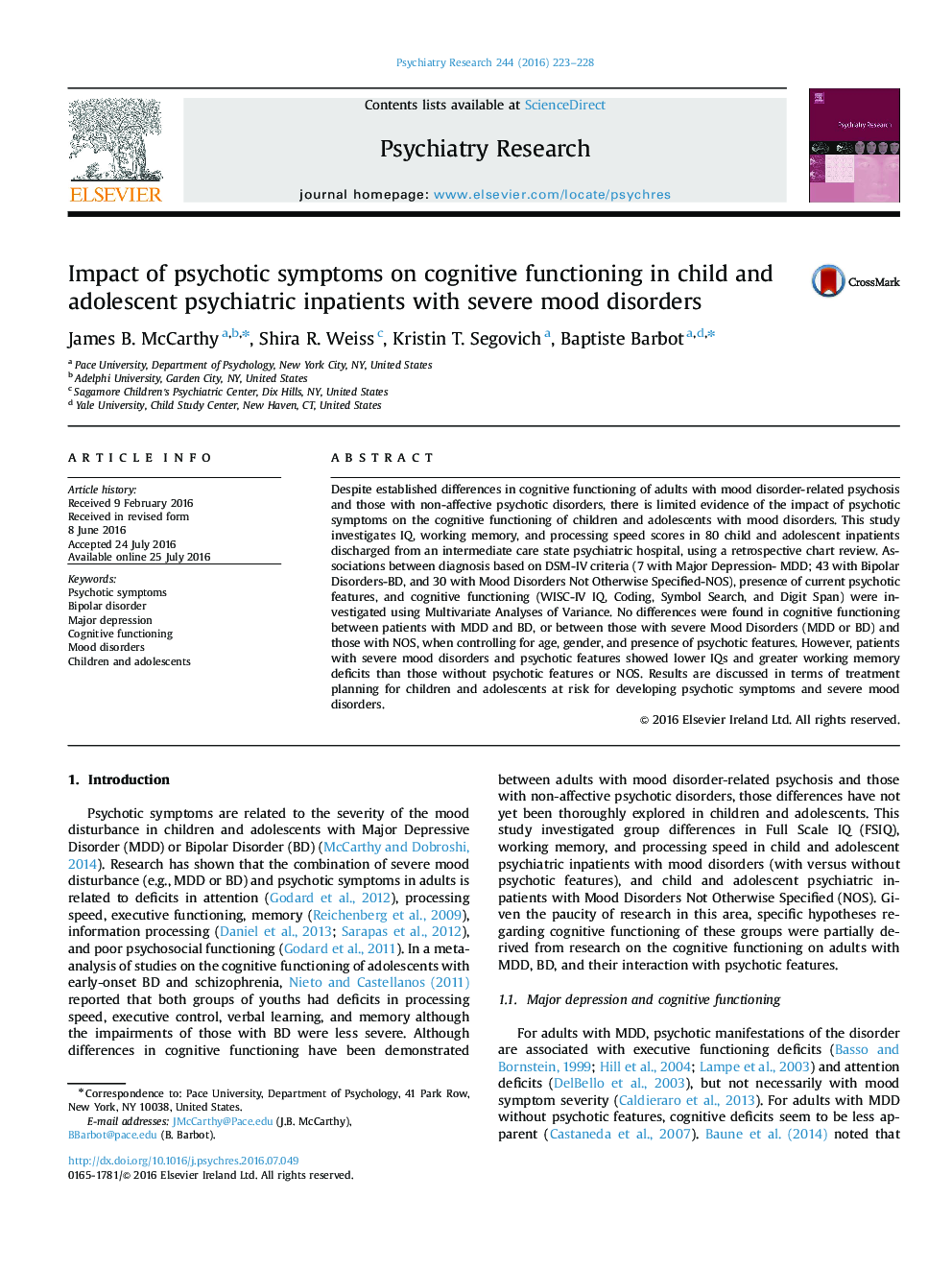| Article ID | Journal | Published Year | Pages | File Type |
|---|---|---|---|---|
| 333015 | Psychiatry Research | 2016 | 6 Pages |
Abstract
Despite established differences in cognitive functioning of adults with mood disorder-related psychosis and those with non-affective psychotic disorders, there is limited evidence of the impact of psychotic symptoms on the cognitive functioning of children and adolescents with mood disorders. This study investigates IQ, working memory, and processing speed scores in 80 child and adolescent inpatients discharged from an intermediate care state psychiatric hospital, using a retrospective chart review. Associations between diagnosis based on DSM-IV criteria (7 with Major Depression- MDD; 43 with Bipolar Disorders-BD, and 30 with Mood Disorders Not Otherwise Specified-NOS), presence of current psychotic features, and cognitive functioning (WISC-IV IQ, Coding, Symbol Search, and Digit Span) were investigated using Multivariate Analyses of Variance. No differences were found in cognitive functioning between patients with MDD and BD, or between those with severe Mood Disorders (MDD or BD) and those with NOS, when controlling for age, gender, and presence of psychotic features. However, patients with severe mood disorders and psychotic features showed lower IQs and greater working memory deficits than those without psychotic features or NOS. Results are discussed in terms of treatment planning for children and adolescents at risk for developing psychotic symptoms and severe mood disorders.
Keywords
Related Topics
Life Sciences
Neuroscience
Biological Psychiatry
Authors
James B. McCarthy, Shira R. Weiss, Kristin T. Segovich, Baptiste Barbot,
